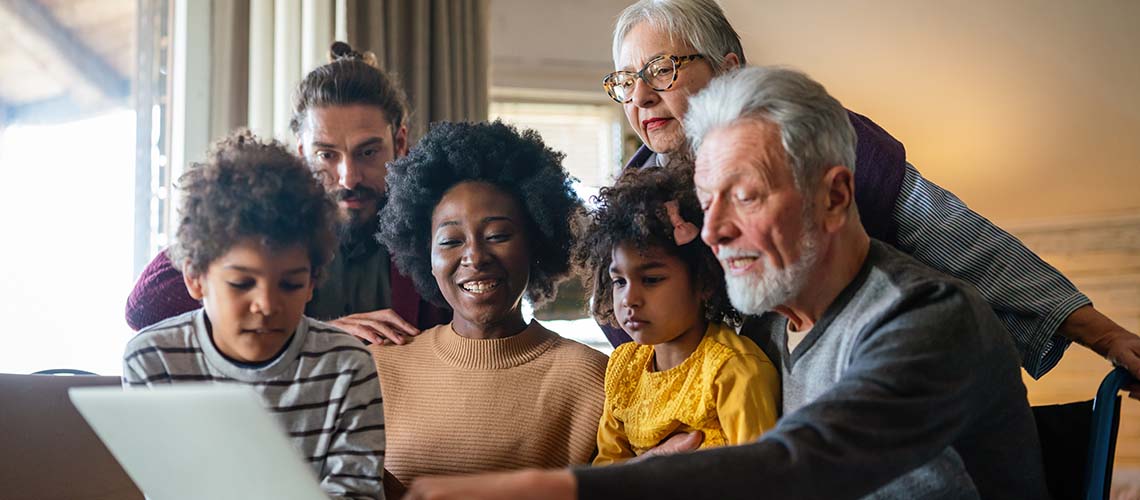The Centre for Health and Innovation in Aging is a hub to bring together aging adults, faculty, students, researchers, innovators, care providers and industry partners to explore novel approaches to healthcare delivery, digital solutions and personalized interventions that address the unique challenges and opportunities associated with aging. With a focus on innovation, research, education and community engagement, the Centre strives to shape a future where aging is not only a natural part of life but also a period of vitality and fulfillment.
The Centre is dedicated to promoting health, independence and quality of life for older people through four key areas:
The Innovations in Aging Technology (AgeTech) priority seeks to position the Centre as a leading collaborative hub, where students, researchers, and industry partners unite to leverage foundational research in the development, evaluation, and advancement of innovative technologies that enhance the lives of older adults. This initiative will not only expose students to cutting-edge advancements in aging technology but also pro-
vide them with valuable experiential learning opportunities.
By engaging students in real-world applications, the Centre will attract them to the growing field of aging technology, showcasing diverse career options and pathways. Ultimately, the Centre will drive innovations that empower older adults to live independently and well in their later years, while offering students meaningful opportunities to contribute to the evolution of aging solutions.
Supporting Initiatives:
- Curriculum Development and Experiential Learning: Support faculty in integrating aging innovations into their curricula by promoting an evidence-informed approach to teaching that is grounded in experiential learning. Partner with the Experiential Learning Steering Committee at MRU to provide opportunities for students to engage with real-world applications and technologies in aging.
- Industry Collaboration and Career Exposure: Establish industry partnerships to provide students with work-integrated learning opportunities, internships, and career exposure, while collaborating with industry partners at career fairs to promote careers in aging technology.
- Assessment Platform and Data Analytics: Develop an evaluation framework for aging technologies, acquire funding to support the evaluation process, and leverage data analytics to improve aging-related technologies to enhance healthcare outcomes for older adults.
The strategic priority Interdisciplinary Research for Healthy Aging aims to establish a platform for researchers, community members, students, and industry partners to collaborate on innovative research addressing the relevant needs of older adults.
The Centre will formalize community partnerships and engage older adults as active research partners.
By valuing the lived experiences of older adults alongside the innovative ideas of students, the Centre will ensure research priorities, methodologies, and interventions are inclusive, relevant, and collaborative.
This approach cultivates an intergenerational model that drives equitable research and strengthens education and community engagement.
Supporting Initiatives:
- Collaborative Learning Environment: Use the Centre as a hub for interdisciplinary collaboration, fostering partnerships between students, faculty, aging adults, community, and industry leaders to engage in research projects focused on innovations in aging technology and healthy aging.
- Build capacity for student/faculty research funding: By acquiring grants and fostering partnerships this initiative will enhance funding opportunities for student and faculty research on healthy aging.
- Environmental Scan and Knowledge Translation: Conduct an environmental scan to map aging-related initiatives across the university, identify faculty who can contribute to the data analytics and data science in this area of work and connect relevant stakeholders.
- Knowledge to Action: The Knowledge to Action initiative bridges research and application, translating findings into impactful community, clinical, and policy interventions that drive actionable change and aim to improve the quality of life for older adults.
Creating a social impact focuses on intergenerational engagement between students, faculty and older adults through programming, and collaborative research. The Centre promotes equity, diversity, inclusion and accessibility (EDIA) by ensuring diverse voices, including older adults, are central in shaping research, policy and practices. Through these efforts, the Centre combats ageism, advocates for age-friendly practices, and creates changemakers prepared to address the challenges of aging populations.
Supporting Initiatives:
- Achieving Age-Friendly University Designation: Work towards achieving the Age-Friendly University (AFU) designation by fostering an inclusive and accessible environment for all ages. This includes implementing policies and programs that promote intergenerational learning, support older adults' participation in academic and social activities, and enhance access to resources. The Centre will focus on integrating older adults into university life, offering lifelong learning opportunities, and addressing age-related barriers to create a vibrant, age-inclusive community.
- Inclusion of Diverse Voices in Programming, Research, and Initiatives: This priority focuses on ensuring that all diverse voices, including those of older adults, are actively included in the Centre’s programming, research, and initiatives. The formation of an advisory committee consisting of both students and older adults will guide initiatives that address aging-related issues and foster community engagement. The committee will help create accessible programming that facilitates meaningful connections and lifelong learning, promoting equity, inclusion, and mutual respect while strengthening intergenerational ties.


